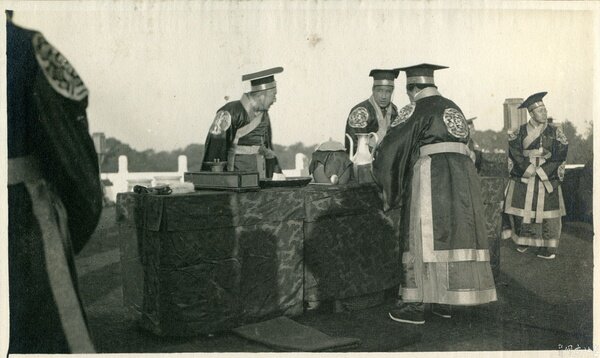The Man Who Wanted to Become Emperor
A little fat guy in an illfitting uniform. You have probably seen pictures of Yuan Shikai: The president of China who wanted to be emperor. Within a few years of his appointment as the first official president of the Republic of China in 1912, Yuan Shikai had lost his belief in the republican project and wanted to go back to the time of the dynasties. In 1915, he went as far as proclaiming himself emperor with the era name Hongxian. Yuan Shikai is remembered as a dictator and a traitor of the people. But interestingly enough, had he died just a few years before he did in 1916, he would have been thought of in quite a different fashion, most likely as a visionary strong man that could have gotten it right for China. Instead that glorious legacy of being the father of the republic went to Sun Zhongsan, a political figure that is even today so agreeable to both the Chinese mainland government and Taiwan that pictures are showed of him at national celebrations in both places.
There is a term in Chinese for what happened to Yuan Shikai: “反面历史人物” it literally means ”people on the wrong side of history”. In the process of creating a publicly accessible history of the early republic, Yuan Shikai became the ultimate bad guy. In 1952 Mao Zedong visited Yuan Shikai’s maosouleum in Henan province and declared that it should be preserved as a negative example for future generations. Yuan Shikai had been reduced to a cartoon like villain.
Ironically many of the national policies pursued by Yuan Shikai were not so very different from those of Sun Zhongshan. Take censorship for instance. As early as the first year of the republic, Sun Zhongsan tried to reign in critical newspapers by issuing a set of restrictions to free speech. He did not succeed because he did not have the political muscle to pull through, but Yuan Shikai did, and in 1914 Yuan Shikai closed several newspaper houses all over the country and for that he became notorious. Sun Zhongsan on the other hand is to this day still remembered as a great democrat.
We have been wanting to look into Yuan Shikai for a long time. What is the real legacy of this little burly man, that arguably laid out the tracks for modern China? As always, we will look through the lense of the Dashilar area in Beijing where our gallery is located and upon which most of our research is concentrated. In Dashilar we find the brothels that were the meeting places for people opposed to Yuan’s Imperial dreams, it is also here that the newspapers and publishing houses that fought so bitterly with the Yuan Shikai government were concentrated,
Another interesting aspect of Yuan Shikai is how his conduct seems so strangely related to the present. Yuan Shikai ended up concluding that China needed a strong man that could rule indefinitely. He decided to build the new republic on Confucianism in order to create a sense of “Chineseness”, and he set up his residence at the lake palaces just next to the Forbidden City. Does any of this at all sound familiar?


